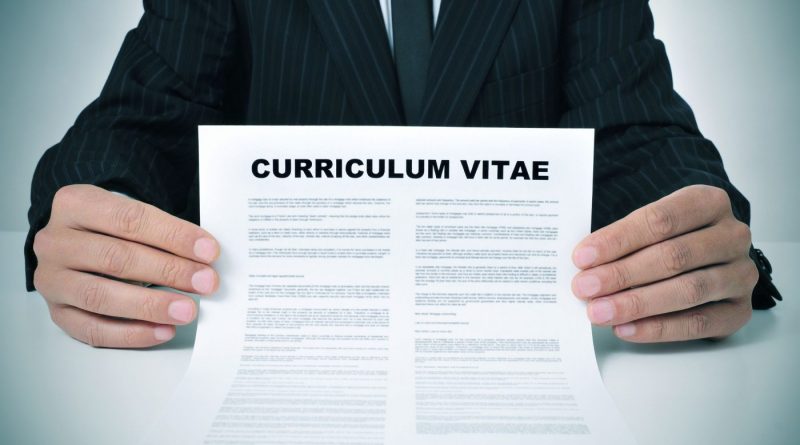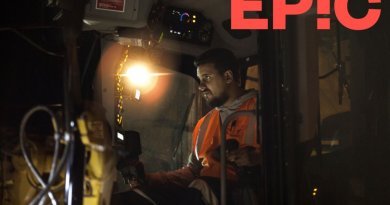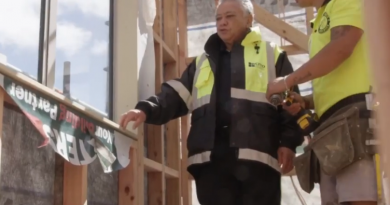How to write a good CV plus downloadable template
- Name & contact details
- Personal Statement (optional)
- Skills (optional)
- Work history
- Education & Qualifications
- Licences & Certificates (optional but preferred)
- Interests (optional)
- Awards & Achievements (optional)
- Referees
Name & contact details
This one might seem pretty obvious but we need to know who you are and how to get in touch with you.
We need to know your:
- First & last name
- Phone number (mobile is fine)
- Email Address (so we can email you payslips & other important info)
- Postal Address (so we can try and place you somewhere close to your home!)
Pro Tips:
- Make sure your email address is something that is work appropriate. bunnylover_123 probably isn’t a good work email address. Try something simple with your name or initials.
- More often than not, we’ll give you a call first, so please make sure your voice message says your name (so we know we are leaving the message for you) and isn’t offensive.
Personal Statement (optional)
A personal statement is your chance to shine. It allows you to show off your strengths, shout about your achievements and share your career aspirations with the hiring manager. However, ensure that you don’t fill this valuable space with clutter and boring business speak, as you’ll end up sounding like everyone else.
Before you get started we recommend that you take some time to read up on what a personal statement is. Below we have provided personal statement examples to fit a range of scenarios to help inspire you, and to ensure you’re on your way to a winning personal statement.
Some ‘DONT’S’ when writing a Personal Statement:
• Don’t include unnecessary personal information e.g. if you are married, recently divorced or how many children you have. This will have no bearing on your potential employer’s decision on whether you are competent for the role.
• Don’t include anything negative or be too flamboyant with claims you cannot back up and don’t lie.
EXAMPLES:
Apprentice / Graduate Personal Statement Example
A apprentice / graduate personal statement is similar to a school leaver personal statement, as the focus will be more on education instead of employment history. Ensure that your graduate personal statement places extra emphasis on your higher education, and skills learnt at university.
As a graduate applying for a role it is key that your personal statement catches the recruiter’s eye quickly. Your personal statement will need to allow them to easily identify your education and transferable skills as a successful applicant.
Example…
“As a recent graduate from X University, with a degree in X, I have work experience at the industry leading organisations X and X. These internships have allowed me to develop my knowledge of the industry and gain hands on experience, as well as furthering my transferable skill set in this exciting sector. My career goal is to gain a role which allows me to further my knowledge and skills, as well as increased responsibility at a market-leading and innovative company.”
DOWNLOAD CONSTRUCTION CV EXAMPLE 1
Work History
It’s ok if you haven’t had much experience – you can put any volunteering or un-paid work in this section. Alternatively you can skip this section and go to the skills section, which demonstrates how to list any skills you may have picked up along the way.
For the work section we need to know the:
- Job title
- Company/employer you worked for (or organisation if it is volunteer work)
- Job Location
- Dates you worked
- A breakdown of what you did there or skills you learnt on the job
For example:
Driver, John’s Farm – Auckland
July 2015 – July 2017
- Tractor & Truck Driving
- Lifting Hay Barrels
- Some Tractor Maintenance
- Customer Service Skills
Easy right?
Pro Tips:
- Usually you want to start with the most recent jobs at the top and then work backwards.
- Don’t include every job you’ve had, just the most recent ones, usually only go back the last 5 years or so.
- If there is something you did at a past job that relates to the job you are applying for, make sure you list it – that way we’ll know you can do the job!
Skills (optional)
More often than not you will have already covered skills in the work history section above but if you haven’t worked at many places or you have other skills you want to highlight, you can include this section.
We want to know:
- What skill you have
- Where you demonstrated or learnt that skill
For example:
Customer Service Skills
- Answering the phone & organising deliveries with suppliers on John’s Farm
- Worked at the service desk for the school library once a week
Pro tip:
Make sure the skills you list match the skills you might need for the role you are applying for.
Education & Qualifications
This is where you can list your education and qualifications you have achieved. You can list high-school (the highest qualification gained) or university but only include this if you completed (or are still attending) the course.
You can list:
- Qualifications you earned
- The school/uni/course you attended
- Start & finish dates or the course completion date
- Any awards or recognition you got that could support your application
For example:
NCEA Level 3 & University Entrance
Auckland High School
Jan 2016 – 2017
- Top of class in woodshop
- School captain
Licences & Certificates (optional but preferred)
If you are applying for a role that requires you to have a specific licence or you have any certificates you think would be of use, you should include them in this section. If you don’t, don’t worry – just skip this section altogether.
We need to know:
- What licence/certificate you hold
- If the licence has a number please include this
- Expiry Date
For example:
Site Safe Certificate
Number: XXXXXXXXXXXXXXX
Expires: 1/12/2017
Pro Tip:
If your licence has recently expired, list it anyway, that way we know you just need to get it renewed. But don’t include licences that have been expired for a few months.
Referees
You will need to provide us with at least two, preferably three, references who we can contact prior to your employment.
Usually your references will be a past employer but if you do not have any past employers, list a lecturer, teacher or other credible person who can support your application. We usually ask not to include family members or friends.
If you do not want to include this on your CV you can put ‘Referees available on request’.
We need to know their:
- First and last name
- Job position
- Relationship to you
- Phone number
Pro tip:
Make sure you contact your referee beforehand and let them know you have listed them. That way they know that the call is coming and won’t be surprised, plus they can prepare what they are going to say about you.




